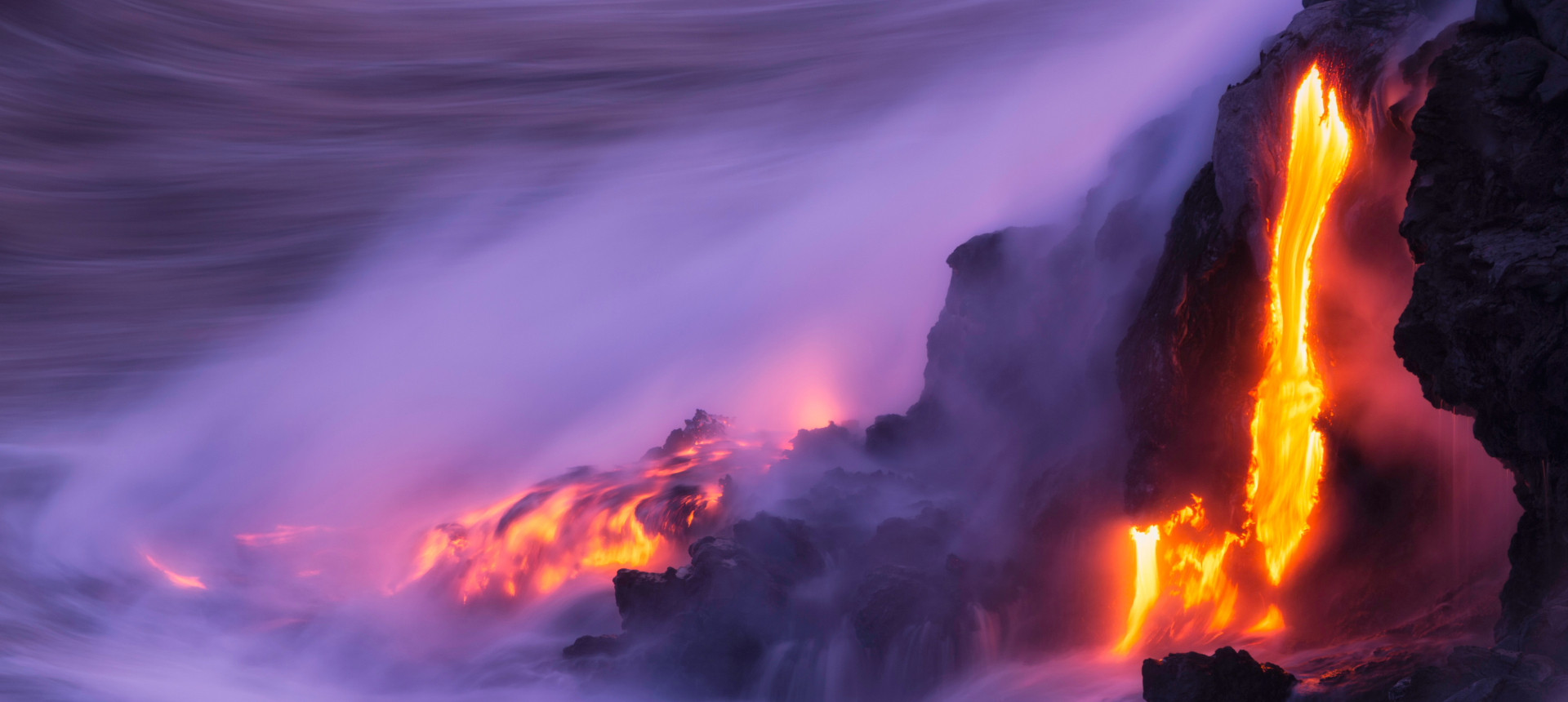If you have ever wondered what Earth Science actually is, then you are not alone. Basically, it’s an umbrella term for a few interlinked subjects that study any natural processes on Earth. This ranges from plate tectonics and the rock cycle; to the atmosphere and weather patterns; to the oceans and the currents that circumnavigate the planet. These are all interlinked in huge global systems that interact with each other. Warm ocean currents can heat up the atmosphere to cause hurricanes that cause heavy rain that erode mountains, dumping sediment back in the oceans, which then form more rocks. Or going the other way, volcanoes can erupt and spew out toxic gases and particles into the atmosphere that can affect the chemistry of the oceans, which then gets subducted and spewed out of volcanoes. So understanding just geology or meteorology or oceanography on their own, only gives you part of the picture. You need to study these together to understand how they interact, which means you need a subject that joins them up called Earth Science. Simples!
Earth Science is a great basis for understanding the environment and the world around us, which means you can go outside and point just about in any direction and there will be an ongoing earth process you can apply your knowledge too. This could range from, just naming a few cloud formations, to becoming a weather nerd. Or just being able to look at a rock to identify it, to becoming a minerology and gemstone geek. This stuff is going on all around you all the time and aren’t you just a bit curious to know what, when, how and why?
On top of that, once you start to get a bit of an understanding of how all this works on Earth, you can start applying this intriguing knowledge to other planets. We are just finding sedimentary rock layers on Mars, which may lead to us finding signs of past life. It won’t be a green alien with a UFO, but probably just some squiggly lines on a rock that used to be a few layers of algae. But it will be a really important discovery for human beings, because it may indicate that life is inevitable and therefore abundant in the Universe. Venus has a run-away greenhouse effect that can teach us things about our own atmosphere and global warming problems. There is a Great Red Spot hurricane on Jupiter that is so big, we could fit the Earth into it comfortably (not sure why we would do that though!) And there may be 4 or 5 oceans out there on different moons, buried under thick ice, teeming with life. And oh yeah, it probably rains diamonds on Neptune! So the best way of understanding all this is by studying Earth Science, because these are all the results of interactions between the hydrosphere, atmosphere and geosphere (and maybe a biosphere).
Hey what about animals and plants, aren’t they part of the natural systems on Earth too? Well, yes they are, and I am glad you asked. However, we don’t want to tread on the toes of the Biologists, so we tend to leave that sort of thing for them to study. But every now and again Biology does become important for the water, air and rock cycles. For example, early in the life of the Earth, cyanobacteria absorbed carbon dioxide and emitted oxygen, changing the atmosphere so that we could breathe it billions of years later. Also, during huge phases of volcanic eruptions, the Earth has almost wiped out all life on the planet on a few different occasions. We only know this from studying animals that died, and got buried quickly enough, so that they were preserved and turned to rocks, which we call fossils. This is also the only way that we know about dinosaurs and the evolution of human beings. So Geology and Earth Science really help give us an insight into abiogenesis and life on the planet today.
Earth Science also includes looking at how humans are affecting the planet, since cumulatively we have become a geophysical natural force, akin to a volcano or a hurricane. Fun fact: the human population passed 8 billion on the 15th November 2022, meaning that even if we all only do a small amount of one thing, then it can add up to enough to change the planets natural systems. The classic example is releasing carbon dioxide into the atmosphere causing global warming. But we also affect the oceans by eating tonnes of fish and pumping our waste products into it. We even cause massive weathering of the rocks by digging up: sand and gravel for building materials; limestone for cement; and vast areas when doing open cast mining. There are just so many of us that we can change the composition of the sea and the atmosphere or destroy whole mountains just to look for shiny things.
Unfortunately the Earth is a finite resource and we need to stop treating like it will be this way forever. Just Google “Snowball Earth” theory to see how the planet was once completely covered in ice for a few million years, because of runaway interactions between the rock, water and air cycles. And did I mention Venus has a runaway Greenhouse effect? So Earth Science also teaches us how fragile and ever changing the environment is and how the planet works and what happens when things get out of balance. So it’s a bit like a Haynes manual, but for a whole planet!
All of this combined means it is an excellent subject to study in of itself; and there are A-levels in Earth Science and GCSEs in Geology and classes on Outschool you can do. But it is also great if you want to apply any of that knowledge you learnt in Maths, Physics, Chemistry, Biology or General Science; they are all used in Earth Science to varying degrees. In fact, there is a bit on the atmosphere and volcanoes in most GCSE General Science curriculums. It is also great if you are thinking of studying Environmental Science A-level or Environmental Management GCSE. But even though these subjects give slightly more emphasis on the interaction of humans with the environment, arguably a solid grounding in Earth Science is essential for this as well.
And don’t get me started on career paths because there are just too many to list. But anything to do with studying the ocean, atmosphere and geology would start with Earth Science. Additionally, this could lead to specialisations in any of these subject areas to work in a related industry, like working for NASA as a planetary scientist. And whether it’s mining, oil exploration, fishing, farm sustainability, weather prediction, marine conservation or environmental protection, then Earth Science is going to be a crucial basic qualification. Finally, it seems very likely that the first human on Mars will be an Earth Scientist, paving the way for us to terraform Mars (using Mars-Earth Science), so that we don’t go the same way as the dinosaurs; wiped out by an asteroid. That’s it, you guessed it, Earth Science may one day save the human race! I rest my case. Earth Science is the best subject. FACT! Mic drop!
 Dr Peter King (Dr Pete) has a passion for Earth Science, Philosophy and Geology and enjoys inspiring kids on Outschool with his fun, exciting and educational courses. He has a BSc in Geology and an MSc in Geophysics and a PhD in Philosophy and loves sharing his knowledge and engaging approach with kids all around the world.
Dr Peter King (Dr Pete) has a passion for Earth Science, Philosophy and Geology and enjoys inspiring kids on Outschool with his fun, exciting and educational courses. He has a BSc in Geology and an MSc in Geophysics and a PhD in Philosophy and loves sharing his knowledge and engaging approach with kids all around the world.
He teaches several one time classes on a range of Earth Science topics, such as The Carbon Cycle, Volcanoes, Pangea & the Supercontinents, the Dinosaur Extinction. He also teaches ongoing and term-long courses in Earth Science topics, and you can also book 1:1 tutoring with him too.
Take a look at all of his classes here.










